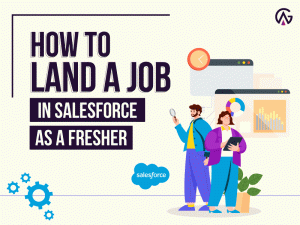Share on
Undoubtedly, data is the cornerstone of innovation and decision-making in today’s business world. Salesforce, a leading CRM provider, efficiently manages customer data & offers a comprehensive suite of services and platforms, all underpinned by an unwavering commitment to transparency, security, compliance, privacy, and performance.
Its latest offering, the Einstein Trust Layer, represents a significant leap forward in how businesses can harness the power of AI, with a focus on trust, transparency, and compliance. One of the critical features of this Einstein Trust Layer is ‘dynamic grounding.
In this blog post, I’ll help you understand the concept of dynamic grounding, Einstein’s trust layer structure & features, and why it’s a game-changer in data management.
Introduction To Einstein Trust Layer
Salesforce Einstein Trust Layer is a vital part of their AI platform, prioritizing ethical AI use. It guarantees safe, responsible, and ethical AI model usage while addressing privacy concerns through its unique design. This layer serves as a security shield for generative AI, seamlessly managing data and privacy, and utilizes techniques to protect sensitive information while gathering feedback for system improvement.
Prompt Layer: Initiates AI interactions by generating inquiries and optimizing instructions for focused responses.
Secure Data Retrieval Layer: Safeguards data access through secure protocols, ensuring only authorized users can retrieve specific information.
Dynamic Grounding Layer: Enables real-time data-driven responses, ensuring accuracy and relevance to current events.
Data Masking Layer: Protects sensitive information using data masking techniques to create structurally similar but inauthentic data copies.
Zero Retention Layer: Deletes user-specific data immediately after processing, reducing data breach risks and ensuring compliance.
Generation Layer: Utilizes advanced language models to produce contextually relevant and grammatically correct AI responses.
Toxicity Layer: Detects and neutralizes harmful content in real-time by analyzing language for inappropriate language or threats.
Audit Trail Layer: Provides a detailed chronological record of all AI interactions for accountability and issue resolution.
Features Of Einstein Trust Layer
Real-time Data Integration: AI continuously gathers and processes data from various sources for up-to-date accuracy, including market trends, customer interactions, and external databases.
Contextual Analysis: AI evaluates the current context (location, time, user behavior, events) to adjust responses, ensuring relevance.
Predictive Modeling: AI predicts future events or outcomes by analyzing historical and current data, which is valuable for anticipating changes.
Data Validation: Mechanisms verify real-time data authenticity and integrity, preventing reliance on incorrect information.
Feedback Loop: Collects user feedback on AI responses for continuous learning and improvement.
Dynamic Grounding In Salesforce Einstein Trust Layer
Dynamic grounding is a fundamental aspect of the Einstein Trust Layer’s capabilities. Dynamic grounding refers to the AI’s ability to ground its responses in real-time data, allowing it to provide accurate and contextually relevant information or insights.
In simpler terms, dynamic grounding enables the AI to stay connected with the current environment and adapt its responses accordingly. It ensures that the AI doesn’t rely solely on pre-existing data but incorporates up-to-the-minute information, making it a powerful tool for businesses in rapidly changing markets.
Real-time Accuracy: Dynamic grounding ensures real-time precision for better decision-making.
Enhanced Relevance: AI provides contextually relevant responses based on current data.
Improved Decision-Making: Empowers timely, well-informed choices in sync with the business landscape.
Adaptability: AI adjusts to changing circumstances, which is crucial for fast-paced industries.
Customer Satisfaction: Elevates customer experience with up-to-date, valuable interactions.
Conclusion
Salesforce’s Einstein Trust Layer, with its dynamic grounding capabilities, represents a significant advancement in data management and AI-driven decision-making. By enabling secure and real-time access to data, dynamic grounding ensures that businesses can stay agile, relevant, and competitive in today’s fast-paced world.
Whether it’s providing personalized recommendations to customers, assisting with complex problem-solving, or predicting market trends, the Salesforce Eintein Trust Layer empowers businesses to harness the full potential of AI.
Need expert guidance on Salesforce capabilities or want to discuss the present and future of the CRM platform? Feel free to contact me; I’m here to assist you every step of the way. Let’s embark on a journey to Salesforce excellence together, ensuring your success.



